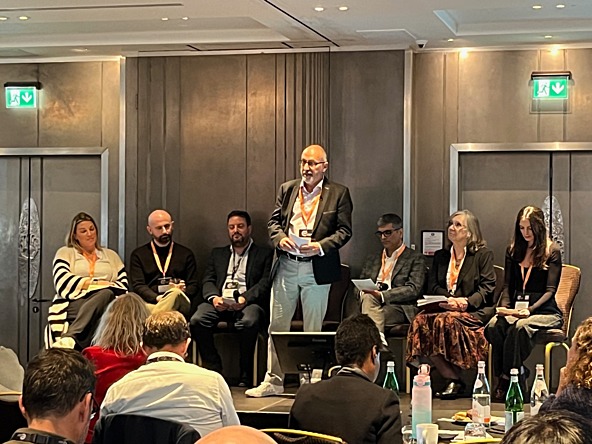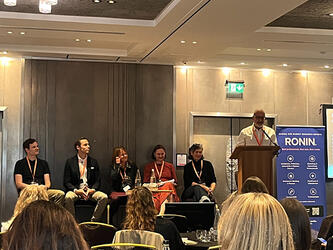B2B versus B2C: Same or different?

The conference, held last week in London, featured a debate arguing whether there was any difference between B2B and B2C research, moderated by Stephen Bairfelt, managing director at Prevision Research and chair at the MRS B2B Network.
Santosh Makhani, senior director at Ipsos, said that the size and scale of B2B research, where small numbers of business directors often feature in contrast to the thousands of consumers in typical B2C research, meant the two were separate disciplines.
“B2B research is often more complex and more involved than a typical B2C project,” he added.
Liz Montgomery, director at Sharp Research, speaking for the differences between B2B and B2C, said the complexity of B2B research had a knock-on effect on the cost and the research design used.
“We are not talking about universes of millions usually – we are often talking about tiny universes [in B2B],” she explained. “We have to really think about the design and whom you are talking to.”
Montgomery added that samples were often hard to find in B2B, adding that “it’s great that you can use LinkedIn for professional or corporate audiences now, but they aren’t going to have plumbers on there, or mechanics – you really have to do a lot of research to build a sample”.
Respondents also usually very busy in B2B and can find it hard to agree a time to do research, she added, which pushes out the research time frames and there is a greater impact on the research project of respondent refusals, due to the small sample sizes and lower strike rates.
Jessica Ashcroft, customer insight officer at Brother International Europe, said B2C and B2B were different as “in B2B research, the standard segmentation options are a lot more limited”, with B2C having more easily accessible segmentation.
“In B2B, segmentation is more likely to be based on smaller, more specific samples and require more bespoke definition as per the needs of the client,” Ashcroft added, with anonymity of participants often also key in businesses, especially in employee surveys and research.
On the side of the debate arguing there was little to no difference between B2B and B2C research, Richard Levy, founder at Sophera Marketing, said that most of the same techniques are common across both disciplines.
“There are tactical and anecdotal differences, but fundamentally there’s no difference between segmentation in B2B than there is in B2C,” Levy said, adding that the same pattern is seen across other areas such as positioning, business conversations, research techniques and pricing.
Jordan Wood, research director at Opinium, argued that communications and advertising were tailored to the specific target audience, rather than whether they were B2C or B2B.
“Creating compelling communications and how we research that communication, optimise it and measure it as researchers is fundamentally and essentially the same regardless of whether the communication is targeting a consumer or a business,” Wood said.
“They both have exactly the same objective – that objective, through advertising, is to engage with the audience on a rational level and on an emotional level. If our objectives are exactly the same, that means that the way we research them has to be similar as well.”
Amy Middleton, director at Beam Fieldwork, added that operational differences between B2C and B2B were also minimal.
“In operations, we follow exactly the same process, whether it is a B2B or B2C audience,” she explained.
“We have to know how to find the right audience, we have to connect with them and get their buy-in.”
Middleton added: “B2B and B2C are extremely important in delivering insights, and although the target audience might differ slightly, the process that we follow to get them are exactly the same.”
In an audience vote, the team arguing in favour of B2B and B2C being distinctly different came out on top.

We hope you enjoyed this article.
Research Live is published by MRS.
The Market Research Society (MRS) exists to promote and protect the research sector, showcasing how research delivers impact for businesses and government.
Members of MRS enjoy many benefits including tailoured policy guidance, discounts on training and conferences, and access to member-only content.
For example, there's an archive of winning case studies from over a decade of MRS Awards.
Find out more about the benefits of joining MRS here.














0 Comments